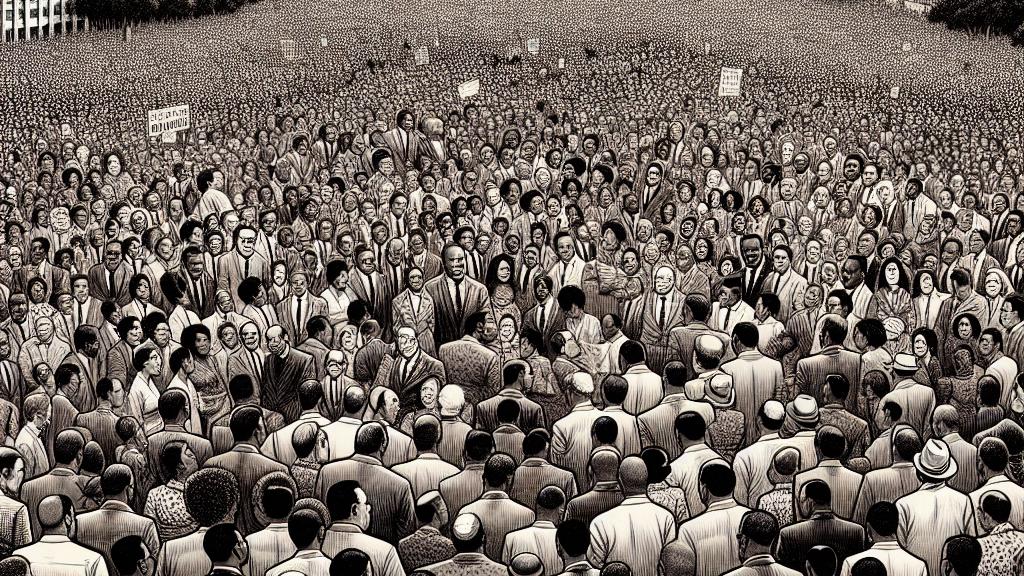March Madness: Unpacking the Washington Stand for Rights!
Overview
- The March on Washington, held on August 28, 1963, was a critical event for civil rights.
- Its goals included advocating for civil and economic rights for African Americans.
- The march directly influenced the passage of the Civil Rights Act of 1964 and included Dr. Martin Luther King Jr.'s famous 'I Have a Dream' speech.

The March on Washington's Historical Significance
Taking place in Washington, D.C., on August 28, 1963, the March on Washington for Jobs and Freedom is recognized as one of the largest rallies for human rights in United States history. It aimed to address the deep-seated injustices faced by African Americans, including unemployment, low wages, and segregation. Over 250,000 participants, encompassing a diverse mix of races and backgrounds, converged on the nation's capital, demonstrating a profound collective yearning for justice and equality. The march not only showcased the solidarity of activists but also highlighted the pressing need for economic opportunities for African Americans, ultimately encouraging a national conversation about civil rights and social justice.
Legislative Outcomes and Societal Changes
The March on Washington played a vital role in the passing of the Civil Rights Act of 1964, a watershed moment in American history that prohibited discrimination on the basis of race, color, religion, sex, or national origin. This legislation addressed unequal treatment in numerous sectors, including voting, education, and employment. The march was instrumental in rallying public support and providing momentum for civil rights leaders advocating for legislative change. As a result of this movement, many discriminatory practices were challenged, and new opportunities for marginalized communities began to emerge. The importance of the march lay in its ability to consolidate various factions within the civil rights movement, unifying voices to push for legislative reforms that transformed the landscape of American society.
Cultural Legacy and Continued Relevance
The cultural impact of the March on Washington continues to resonate in contemporary society. As participants sang 'We Shall Overcome,' the event solidified itself not only as a political demonstration but also as a significant cultural moment that inspired future generations. Key figures from the event, particularly Dr. Martin Luther King Jr., have become icons of resistance and hope, reminding us of the importance of perseverance in the face of adversity. Literary figures like James Baldwin, who brought attention to the struggles of African Americans, amplified the messages of the march through their writings. Today, issues of racial inequality and social justice still echo the sentiments expressed during the march, demonstrating that the fight for equality is an ongoing journey that demands vigilance, activism, and a commitment to change.

Loading...